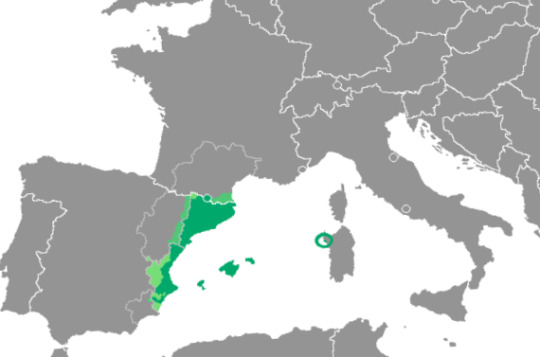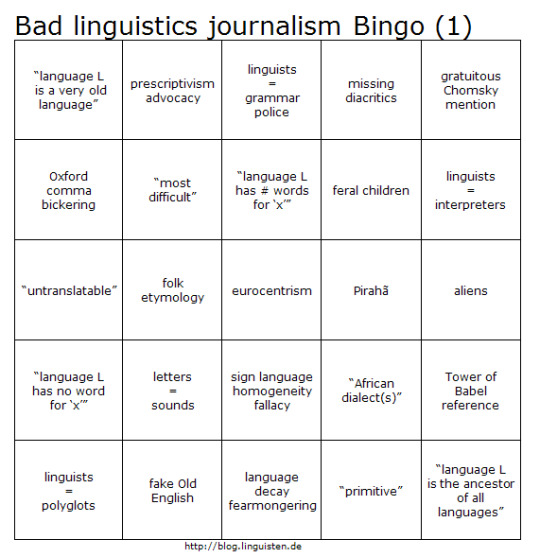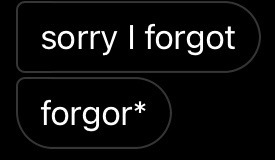i have a broad definition of what constitutes "linguistics." don't send me asks about the praat logo.
Don't wanna be here? Send us removal request.
Text
official linguistics post
sign language & linguistics resource!
linguist Adam Schembri has been updating his amazing resource, What All Linguists Should Know (about sign languages). It's a really fantastic repository of info, including some really great basics that are great for students and non-linguists as well. Please share widely! I'll also copy a few links from his page, just as highlights:
What is sign language? (Schembri, 2013) https://theconversation.com/explainer-what-is-sign-language-21453
How many sign languages are there? (Glottolog) https://glottolog.org/resource/languoid/id/sign1238 (short answer: at least 220)
How are sign languages acquired? (Lillo-Martin & Henner, 2021) https://www.annualreviews.org/doi/abs/10.1146/annurev-linguistics-043020-092357
I recommend that anyone interested in or studying linguistics at any level (from hobbyist to professional!) ask themselves (and colleagues, instructors, students, etc), frequently: wait - is that true about languages in general, or just spoken languages? Have we done any research about how this works in other modalities? Keep asking the question!
481 notes
·
View notes
Text
official linguistics post
It's always sooooo funny when English people or Americans are like "Why are Irish names so hard to pronounce?? Why are these Welsh words so insane???" that's because it is a different language that you do not speak hope this helps ❤️
18K notes
·
View notes
Text
official linguistics post

A cute example of what I've taken to calling "toddler transcription" - where moms/older siblings would copy down phonetically what pre-school aged children wanted to write to Santa.
Berneice was three and, given all the Cs swapped with Ts, I suspect she had a stuffy nose.
(source: The Marysville Tribune, December 16, 1896.)
2K notes
·
View notes
Text
official linguistics post

For comparison, the map of geolocated Wikimedia elements vs map of the Catalan Countries:

Catalan was the 3rd Wikipedia to be created (after English and German) but, even though German Wikipedia website had been created, it didn't have any articles for a while. For this reason, Catalan Wikipedia was the 2nd Wikipedia in the world with articles.
Since its creation in 2001, the Catalan community has been one of the most active Wikipedia communities in the world with the objective of making reliable information in our language freely available to anyone. In 2010, the Catalan Wikipedia became the first version of Wikipedia to rank high quality in all the articles of Wikipedia’s List of Articles All Languages Should Have, reaching this milestone even before English. It has also been awarded many other times for its high quality articles.
Thank you to everyone who contributes!
2K notes
·
View notes
Text
congratulations to lingthusiasm on 100 episodes!
Lingthusiasm Episode 100: A hundred reasons to be enthusiastic about linguistics
This is our hundredth episode that's enthusiastic about linguistics! To celebrate, we've put together 100 of our favourite fun facts about linguistics, featuring contributions from previous guests and Lingthusiasm team members, fan favourites that resonated with you from the previous 99 episodes, and new facts that haven't been on the show before but might star in one of the next 100 episodes in greater detail.
In this episode, your hosts Gretchen McCulloch and Lauren Gawne talk about brains, gesture, etymology, famous example sentences, languages by the numbers, a few special facts about the word "hundred" and way more! This episode is both a fun overview of the vibe of Lingthusiam if you've never listened before, and a bonus bingo card game for diehard fans to see how many facts you can recognize.
We also invite you to share this episode alongside one of your favourite fun facts about linguistics and help more people find Lingthusiasm in honour of our 100th episodiversary! Whether you pick something new that resonates from this episode, or share the fact you were sitting on the edge of your seat hoping we'd mention, we look forward to staying Lingthusiastic with you for the next 100 episodes.
Click here for a link to this episode in your podcast player of choice or read the transcript here.
Announcements:
In this month’s bonus episode we get enthusiastic about some of our favourite deleted bits from recent interviews that we didn't quite have space to share with you! First, we go back to our interview with phonetician Jacq Jones, previously seen talking about how binary and non-binary people talk. Then, we return to computational linguist Emily M. Bender to talk about how Emily's students made a computational model of Lauren's grammar of Lamjung Yolmo and how linguistics is a team sport. Finally, we return to our group interview with the team behind Tom Scott's Language Files to talk about sneaky Icelandic jokes and the unedited behind-the-scenes version of the gif/gif joke.
Join us on Patreon now to get access to this and 90+ other bonus episodes. You’ll also get access to the Lingthusiasm Discord server where you can chat with other language nerds.
Here are the links and citations mentioned in the episode:
Wikipedia entry for 'Writing system'
Wikipedia entry for 'Punctuation'
Wikipedia entry for ''Okina'
Wikipedia entry for 'Hamza'
Wikipedia entry for 'Glottal'
'Fneeze' blog post from EtymologyNerd
Etymonline entry for 'kn-' prefix
Calque is a loanword; loanword is a calque on Tom Scott's Language Files
'When You Think About It, Your Past Is in Front of You: How Culture Shapes Spatial Conceptions of Time' by Juanma De la Fuent et al
Wikipedia entry for 'Jabberwocky'
'Sound–meaning association biases evidenced across thousands of languages' by Damián E. Blasi et al
Wikipedia entry for 'Lion-Eating Poet in the Stone Den'
'Reading Senseless Sentences: Brain Potentials Reflect Semantic Incongruity' by Marta Kutas and Steven A. Hillyard
Wikipedia entry for 'Zeugma and syllepsis'
Pi(e) facts post on Bluesky from Gretchen
Glottolog entry for 'Family: Indo-European'
Glottolog entry for 'Family: Austronesian'
Wikipedia entry for 'Languages of Papua New Guinea'
List of the worlds languages on Glottolog
'How Many Stars Are There in the Sky?' by Megan Garber on The Atlantic
Glottolog entry for 'Pseudo Family: Sign Language'
'Biography of Laurent Clerc' post on Gallaudet University website
'Q&A: How Pro-Tactile American Sign Language — PTASL — is changing the conversation' by Jaimi Lard and Christine Dwyer on Perkins.org
'Feeling the signs: tactile Auslan' post from Australian Institute of Interpreters and Translators Inc
'How do we know if they could speak?' by Fran Dorey for Australian Museum
'If you say thee uh you are describing something hard: The on-line attribution of disfluency during reference comprehension' by J. E. Arnold, C. L. H. Kam. & M. K. Tanenhaus
'The effect of disfluency on memory for what was said' by E. Diachek, & S. Brown-Schmidt
Wikipedia entry for 'Gender Neutrality' and 'Neopronoun'
Wikipedia entry for 'Centum and satem languages'
Wikipedia entry for 'Long hundred'
Lingthusiasm episodes mentioned:
What it means for a language to be official
Writing is a technology
Word Magic
Tea and skyscrapers - When words get borrowed across languages
Colour words around the world and inside your brain
Why do C and G come in hard and soft versions? Palatalization
What words sound spiky across languages? Interview with Suzy Styles
Frogs, pears, and more staples from linguistics example sentences
Bonus episode 'The episode-episode (Reduplication)'
Bonus episode 'When letters have colours and time is a braid - The linguistics of synesthesia'
Speaking a single language won't bring about world peace
How to rebalance a lopsided conversation
Talking and thinking about time
This time it gets tense - The grammar of time
Bonus episode 'Is X a sandwich? Solving the word-meaning argument once and for all'
Bonus episode 'LingthusiASMR - The Harvard Sentences'
Merch mentioned in this episode:
Space Pigeon and Space Babies merch
Little Longitudinal Language Acquisition Project
You can listen to this episode via Lingthusiasm.com, Soundcloud, RSS, Apple Podcasts/iTunes, Spotify, YouTube, or wherever you get your podcasts. You can also download an mp3 via the Soundcloud page for offline listening.
To receive an email whenever a new episode drops, sign up for the Lingthusiasm mailing list.
You can help keep Lingthusiasm ad-free, get access to bonus content, and more perks by supporting us on Patreon.
Lingthusiasm is on Bluesky, Twitter, Instagram, Facebook, Mastodon, and Tumblr. Email us at contact [at] lingthusiasm [dot] com
Gretchen is on Bluesky as @GretchenMcC and blogs at All Things Linguistic.
Lauren is on Bluesky as @superlinguo and blogs at Superlinguo.
Lingthusiasm is created by Gretchen McCulloch and Lauren Gawne. Our senior producer is Claire Gawne, our production editor is Sarah Dopierala, our production assistant is Martha Tsutsui Billins, our editorial assistant is Jon Kruk, and our technical editor is Leah Velleman. Our music is ‘Ancient City’ by The Triangles. This episode of Lingthusiasm is made available under a Creative Commons Attribution Non-Commercial Share Alike license (CC 4.0 BY-NC-SA).
306 notes
·
View notes
Photo

Bad linguistics journalism bingo
Do you feel like crying every time you read, see or hear anything concerning linguistics & languages in popular media? Does the n-th installment of the Eskimo Vocabulary Hoax™ make you cringe? Are you tired of writing letters to editors correcting them about ling & lang facts? Then this is the game for you.
If you have suggestions for further sheets, please contact us.
[image edited / replaced]
5K notes
·
View notes
Text
there have been sightings of a previously unknown morphosyntactic alignment in some guy's closet. in the past two weeks, three more theoretical frameworks for linguistics have turned into Optimality Theory overnight. the complex houses, unnamed sources say, married garden paths. "we're still expecting the baby," a proto-world recapitulationist is heard saying. jovial diffusions happen lexically down the mountain trail. on their father's death, local historical linguist told us that the aging of a family is a pull chain. two undescribed sci-fi alien languages stir neighborhood controversy for trying to become real. typesetting IPA on a typewriter: is it a good idea? specialist says you'll have to say yes very soon, but declined to explain when we asked, and when we asked how they got in the studio. did you feel that, listener? just now, all island effects disappeared for one second, then came back as if nothing had happened. a grad student won 1 dollar by perfectly drawing a spectrogram by hand. there have been reports of New Nouns. just like Newton was hit by an apple, a generativist was hit by an entire tree. and now, the weather
861 notes
·
View notes
Text
official linguistics post
i actually write in american anarchist standard english which only really has three rules:
never capitalize country names (unless abbreviated)
em dashes are pretty cool
have fun and be yourself
4K notes
·
View notes
Text
official linguistics post

i love what the internet has done to the english language
54K notes
·
View notes
Text
Two new open-access books on inclusion and decolonization in linguistics!
Inclusion in Linguistics, Anne H. Charity Hudley, Christine Mallinson, Mary Bucholtz (Eds.) (2024), Oxford University Press
Full-text PDF Companion website
Decolonizing Linguistics, Anne H. Charity Hudley, Christine Mallinson, Mary Bucholtz (Eds.) (2024), Oxford University Press
Full-text PDF Companion website
Per Anne H. Charity Hudley, "we strongly encourage readers to engage with [the books] as a pair. The volumes and the models of decolonized and inclusive research, teaching, advocacy, and action that they present are informed by each other." (Source)
They also ask: "In support of publication justice, please share the links rather than the PDF files so that our authors get the download documentation and credit for their work that they deserve." (Source)
Go forth and be educated!
1K notes
·
View notes
Note
Why do words have genders? Sincerely, not sarcastically
i'm gonna break this up into 2 pieces: the concept of grammatical gender, and the "why," such as it is.
words don't have social gender the same way we apply it to humans! grammatical gender is a noun class system that has implications for grammatical agreement in other words. some languages end up with correlations to human social gender, yes, but structurally they don't have to be linked.
this is one of those questions that doesn't really have an answer. there's not necessarily a cohesive "why" to the way linguistic structures develop, and it's virtually impossible to design the question in such a way that it could be empirically investigated. i might be able to ask "why does a scribe in X place at Y time use Z inflection in this text" and come up with a reasonable explanation involving sociolinguistic factors, but it's much much harder to research something so broad and ultimately ambiguous.
tl;dr ¯\_(ツ)_/¯
693 notes
·
View notes
Text
official linguistics post
accidentally fumbled "whodda thunk" and "who'd've guessed" together into the beautiful new "whodda gunk"
30K notes
·
View notes
Text
OFFICIAL BREAKING LINGUISTICS NEWS
Ok I am once again liveblogging the Word of the Year vote
• For informal word of the year, multiple people have gone up to the mic announcing themself as “team rawdog”
• One respected professor threw his support behind “W”, saying (I’m paraphrasing) “double the u, double the pleasure”
• In lieu of an institution, one person announced themself as a “tumblr shitposter”. That person? Was me.
#the minute i saw this break on bluesky i paused my show to RUN for kwekstra's tumblr#you're doing the good work for us thank you
21K notes
·
View notes
Text
official linguistics post
3 papers to read in Deaf & disability studies within linguistics
I was compiling a to-read list for another purpose anyways, so I thought I might as well drop this here! These 3 papers are at the intersection of Deaf studies, disability studies, and linguistics. Jon Henner, Lina Hou, and Octavian Robinson are all scholars to read in this area.
Henner, J., & Robinson, O. (2023). Unsettling languages, unruly bodyminds: A crip linguistics manifesto. Journal of Critical Study of Communication and Disability, 1(1), 7-37. The paper is here, and there's also this lovely podcast version read by Vagrant Gautam.
Hou, L., & Namboodiripad, S. (2024). Manifesting a Crip Linguistic Theory through a Critical Disability Raciolinguistic Perspective. A preprint of the paper is available here.
Robinson, O. E., Sheneman, N., & Henner, J. (2020). Toxic ableism among interpreters: Impeding deaf people’s linguistic rights through pathological posturing. Honouring the past, treasuring the present, shaping the future, 14-41. The paper is here.
I'm new to reading in this topic, so I may do another post with another set of papers in the future when I have read more deeply! If you know other papers that talk about Deaf and disability studies in linguistics, please feel free to drop links and citations
685 notes
·
View notes